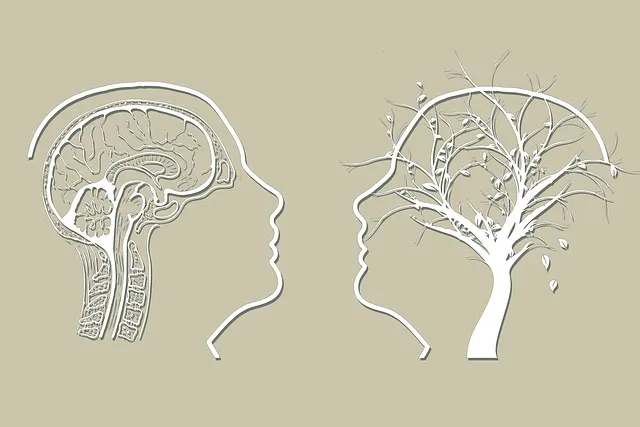Kaiser Permanente Norcal's Crisis Intervention Teams (CITs) provide immediate, specialized support during severe emotional crises, utilizing training focused on emotional regulation and communication. Their Superior Model offers unique training programs to empower employees and community members with skills for effective mental health crisis management, including trauma support and anxiety relief techniques. CIT training integrates mood management, policy advocacy, strong assessment, evidence-based interventions, and access to expert guidance via the Kaiser Permanente mental health phone number Norcal Superior. This approach enhances response times, reduces repeat calls, and prevents long-term depression, demonstrating the program's effectiveness and fostering continued investment in mental health support systems.
Crisis Intervention Teams (CITs) are essential resources in providing immediate, effective support during mental health crises. This article explores the critical role of CITs and delves into comprehensive training programs, highlighting successful models like Kaiser Permanente’s Norcal Superior approach. We examine key components for effective CIT training, including practical skills and emotional resilience, and discuss implementing these programs in community settings, focusing on measurable impacts. By understanding and optimizing CIT training, we can enhance access to quality mental health care.
- Understanding Crisis Intervention Teams: A Vital Resource in Mental Health Support
- Kaiser Permanente's Approach to Training: The Norcal Superior Model
- Key Components of Effective Crisis Intervention Team Training Programs
- Implementing and Evaluating the Impact of CIT Training in Community Settings
Understanding Crisis Intervention Teams: A Vital Resource in Mental Health Support

Crisis Intervention Teams (CITs) are a vital resource in mental health support, providing immediate assistance to individuals experiencing severe emotional crises. These teams, often composed of trained professionals from various disciplines, offer a coordinated approach to address complex and potentially dangerous situations. At organizations like Kaiser Permanente Norcal, the mental health phone number serves as a gateway for individuals seeking urgent help, connecting them with CITs equipped to handle a range of issues, from suicide attempts to psychotic episodes.
The training programs for these teams focus on enhancing emotional regulation skills for both team members and those they support. By equipping mental health professionals with effective communication strategies, CIT training enables them to de-escalate high-stress scenarios while conducting thorough risk assessments. This comprehensive approach not only ensures the safety of individuals in crisis but also fosters healthier outcomes through better understanding and care within the Superior healthcare system.
Kaiser Permanente's Approach to Training: The Norcal Superior Model

Kaiser Permanente, a renowned healthcare provider, has established an innovative approach to crisis intervention through its Norcal Superior Model. This training program focuses on empowering employees and community members to offer effective mental health support during emergencies. The model prioritizes early identification of distressing situations and equips participants with the necessary tools for immediate assistance.
By utilizing a combination of educational sessions, role-playing exercises, and real-life scenario simulations, the Norcal Superior Model ensures that individuals learn practical emotional well-being promotion techniques. This includes strategies for trauma support services, particularly focusing on anxiety relief methods. The program’s comprehensive curriculum enables participants to handle crises more confidently, ensuring better outcomes for those in need.
Key Components of Effective Crisis Intervention Team Training Programs

Effective crisis intervention team (CIT) training programs are multifaceted, aiming to equip participants with the skills and knowledge necessary to handle mental health crises competently. One key component is Mood Management, focusing on techniques to de-escalate individuals in distress and support their emotional stabilization. Training should also integrate Mental Health Policy Analysis and Advocacy, instilling an understanding of systemic issues that contribute to crises and empowering teams to advocate for improved services and resources.
Furthermore, programs should prioritize the development of strong communication skills, crisis assessment abilities, and evidence-based interventions tailored to diverse populations. The Kaiser Permanente mental health phone number Norcal serves as a valuable resource, providing access to expert guidance during training and post-intervention support. By combining these elements, CIT training ensures that teams are well-prepared to navigate complex situations, promote mental wellness, and foster positive outcomes for individuals facing mental health crises.
Implementing and Evaluating the Impact of CIT Training in Community Settings

Implementing crisis intervention team (CIT) training programs in community settings has shown significant promise in enhancing mental health support systems. Organizations like Kaiser Permanente Norcal have been at the forefront of promoting these initiatives, recognizing their potential to revolutionize emotional healing processes. By equipping civilians with the skills to recognize and respond to crises, these programs aim to reduce the burden on emergency services and provide timely anxiety relief.
The impact of CIT training extends beyond immediate crisis situations, offering long-term benefits in depression prevention and overall community resilience. Evaluating these programs involves assessing improved response times, reduced repeat calls for mental health support, and increased satisfaction among participants and those they assist. Such assessments are crucial in demonstrating the effectiveness of CIT training, fostering continued investment in these initiatives, and ultimately enhancing the well-being of communities served by mental health phone numbers like Kaiser Permanente’s.
Crisis intervention team (CIT) training programs, as exemplified by Kaiser Permanente’s Norcal Superior Model, play a pivotal role in enhancing mental health support. These comprehensive programs equip healthcare professionals with the skills to effectively navigate and de-escalate crisis situations. By focusing on key components such as cultural competency, evidence-based practices, and peer support, CIT training has proven to improve patient outcomes and community resilience. Organizations like Kaiser Permanente, with their dedication to mental health initiatives, highlight the impact of such training in reducing emergency room visits and promoting recovery. Accessing resources like the Kaiser Permanente mental health phone number can further facilitate connection to these valuable programs, ultimately fostering healthier communities.






